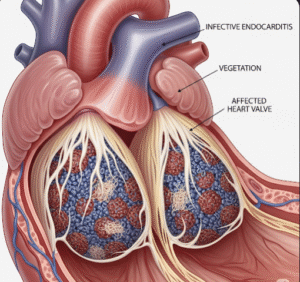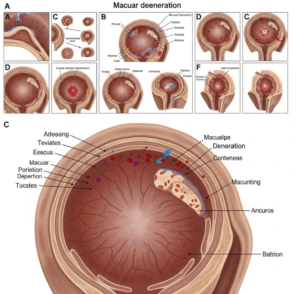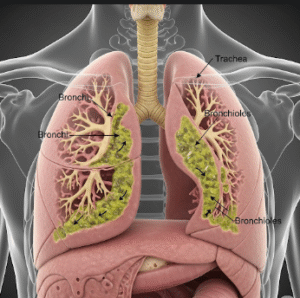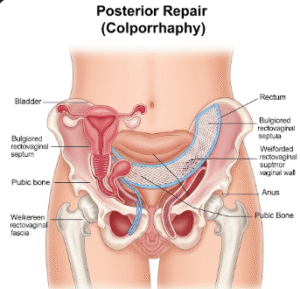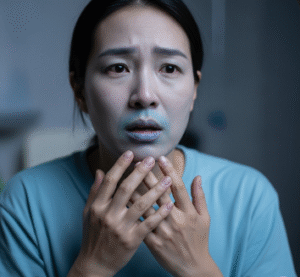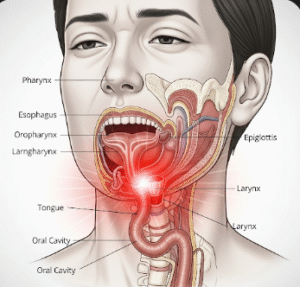Overview
Psychosis is a serious mental health symptom characterized by a loss of contact with reality. People experiencing psychosis may have hallucinations (seeing or hearing things that aren’t real), delusions (false beliefs despite evidence), or disorganized thinking.
Psychosis is not a standalone disease but a feature of underlying psychiatric, neurological, or medical conditions. In Korea, specialized psychiatric hospitals and mental health centers offer advanced diagnostic tools, inpatient and outpatient care, psychotherapy, and integrative treatments, making the country a leading hub for managing psychosis.
➤ Represents a break from reality
➤ Often linked to schizophrenia, bipolar disorder, severe depression, or neurological diseases
➤ Requires urgent medical evaluation and long-term care planning
Key Facts
➤ Psychosis can occur in psychiatric disorders, medical illnesses, or due to substance use.
➤ About 3 in 100 people will experience psychosis at some point in life.
➤ Symptoms include hallucinations, delusions, disorganized thoughts, and impaired social functioning.
➤ Early detection and treatment greatly improve long-term outcomes.
➤ In Korea, hospitals use multidisciplinary approaches combining psychiatry, neurology, counseling, and rehabilitation.
What is Psychosis?
Psychosis refers to a state where a person loses touch with reality and struggles to distinguish between what is real and what is not. It is usually temporary and treatable but can be severe and disruptive.
Psychosis may appear suddenly (acute psychosis) or develop gradually over time. It can be a single episode or part of a chronic mental health condition.
What Symptoms Are Related To
People with psychosis may experience one or more of the following:
➤ Hallucinations – hearing voices, seeing visions, or sensing things that don’t exist.
➤ Delusions – strong false beliefs, such as being followed, spied on, or having special powers.
➤ Disorganized speech – speaking incoherently or jumping between unrelated topics.
➤ Disorganized behavior – unpredictable, inappropriate, or erratic actions.
➤ Cognitive problems – poor concentration, memory issues, and slowed thought processes.
➤ Social withdrawal – avoiding friends, family, or work.
➤ Lack of insight – being unaware that their experiences are abnormal.
What Causes / Possible Causes
Psychosis has multiple possible causes, including psychiatric, neurological, and medical conditions.
➤ Psychiatric Conditions
➤ Schizophrenia spectrum disorders.
➤ Bipolar disorder (manic or depressive episodes with psychotic features).
➤ Severe depression with psychotic features.
➤ Neurological Disorders
➤ Dementia, Parkinson’s disease, epilepsy, or brain tumors.
➤ Traumatic brain injury or stroke.
➤ Substance-Induced Psychosis
➤ Alcohol, cannabis, hallucinogens, or stimulant drugs (e.g., methamphetamine).
➤ Withdrawal from drugs or medications.
➤ Medical Conditions
➤ Severe infections (e.g., encephalitis).
➤ Metabolic disorders or thyroid dysfunction.
➤ Sleep deprivation or extreme stress.
When Should I See My Doctor
Seek immediate medical help if you or someone you know shows:
➤ Sudden changes in behavior, thought, or speech.
➤ Hallucinations or delusions affecting daily life.
➤ Loss of ability to function at work, school, or socially.
➤ Aggressive or self-harming behaviors.
➤ Psychosis occurring alongside medical issues (like seizures, fevers, or head injuries).
Early intervention is crucial because the longer psychosis is untreated, the harder recovery may become.
Care and Treatment
Treatment of psychosis depends on its cause but usually includes a combination of medication, psychotherapy, and supportive care.
➤ Medication
➤ Antipsychotics (first-line treatment) – reduce hallucinations, delusions, and disorganized thinking.
➤ Mood stabilizers or antidepressants – if psychosis is linked to bipolar disorder or depression.
➤ Psychological Support
➤ Cognitive Behavioral Therapy for Psychosis (CBTp): Helps patients challenge distorted thoughts.
➤ Family therapy: Supports loved ones and improves home stability.
➤ Psychoeducation: Teaching patients to recognize symptoms early.
➤ Lifestyle Adjustments
➤ Stress management through mindfulness, meditation, or yoga.
➤ Avoiding drugs, alcohol, or sleep deprivation.
➤ Healthy daily routines with proper nutrition and exercise.
➤ Crisis Intervention
➤ Hospitalization may be required during acute psychosis for safety.
Treatment Options in Korea
Korea offers some of the most advanced psychiatric and neurological care in Asia, making it a trusted destination for psychosis treatment.
➤ Top Psychiatric Hospitals & Clinics
➤ Seoul National University Hospital (SNUH) – specialized psychiatric units for schizophrenia and psychosis.
➤ Asan Medical Center – integrates psychiatry, neurology, and rehabilitation medicine.
➤ Seoul Mental Health Center – outpatient services with early psychosis intervention programs.
➤ Advanced Therapies in Korea
➤ Brain Imaging (MRI, PET scans, EEG): Detects structural or functional brain changes.
➤ Neurostimulation therapies (rTMS, ECT): For treatment-resistant psychosis.
➤ Rehabilitation programs: Focus on social skills, occupational therapy, and reintegration.
➤ Holistic & Integrative Care
➤ Combination of Western psychiatry and traditional Korean medicine (herbal remedies, acupuncture, relaxation therapies) for recovery support.
➤ Community-based mental health centers that provide long-term outpatient follow-up.




